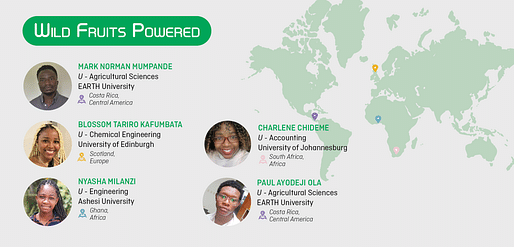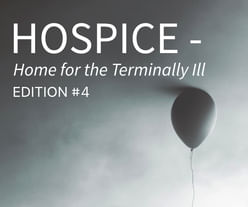
Semifinalists have been named for this year’s Wege Prize presented by Ferris State University’s Kendall College of Art and Design (KCAD).
The contest looks to reward projects that tackle a wide range of issues including everything from social equity to climate change. An international field of 30 student-led works was considered for their abilities to enact circular solutions and position themselves as “agents of change” against the “wicked problems” which have beset the world of professional design. The contestants came from 17 countries and offered brilliant and innovative solutions to these issues, including plastics-degrading microbes, mobile hydroelectric generators, agricultural waste captured to boost community health, and aquaponics systems that save water and encourage biodiversity.
“We are impressed with the international, collaborative and cross-disciplinary nature of the student teams under consideration as semifinalists, hailing everywhere from the African Leadership University in Rwanda, to top U.S. schools like Brown and Yale, to Eastern Michigan University, right here in our home state,” Wege Prize program coordinator Martha Meiers said in a statement.
The group of 15 shortlisted teams will now move onto phase 3 of the competition. Particpants have received extensive feedback which has helped further develop their broad range of ideas.
More details will be released in the weeks to follow. Scroll down for a closer look at each contestant.

AquaPro
"Tackling water pollution with an innovative aquaponics system to grow Tilapia fish, vegetables and duckweed, reducing fertilizer application in growing organic crops, slashing water usage by 90% and maximizing crop yield – while cutting water pollution – to contribute to the circular economy."

CirCon
"Delivering an alternative solid waste and agricultural produce drying method with the use of renewable energy (solar concentrators) in an innovative new drier design."

CleanFire
"Growing plants primarily using waste from various processes as their nutrients, then harvesting the plants and generating energy with waste streams."

Decarbonize Our Built Environment
"This team addresses climate change and the building and construction industry by reinventing the mass timber supply chain."

Decomp
"An organic plastic waste disposal solution using proprietary plastic-degrading microbes to facilitate the degradation of plastics in weeks, as opposed to the hundreds of years that plastics take to naturally degrade."

Dir Innovation Hub (Hulubeje)
"A hybrid and movable hydroelectric generator that can produce 5 to 10 kW electricity by using small rivers and streams for a rural community."

Footprint
"Making good use of discarded fabric – without downcycling — by using large-scale hyperspectral imagery to sort blends and colors, remove buttons and zippers, and more."

Green Promoters
"Reducing the effects of chemical pesticides and fertilizers, the team is creating an organic product that is both a pesticide and a fertilizer."

Neocycle
"Rare earth elements in laptops and catalytic converters are recycled and captured in a novel and sustainable synthetic biology approach for circular element extraction, recovery and usage."

PlasticFree Squad
"This team is replacing single-use plastic containers with biodegradable containers made of bagasse, a byproduct of the sugar industry abundantly available in India."

Robust
"Processing banana fiber waste into affordable and environmentally friendly textiles and paper bags."

Scup Aquaculture
"Launching a technological innovation with multiple-use platforms to support offshore wind farms, aquaculture possibilities, and fish biodiversity."

Tizu Organics
"Producing inexpensive organic biofertilizer, made with mountain microorganisms and food wastes from local Tanzanian markets — otherwise wasted tomatoes, spinach, cabbages and more."

Waste to Power
"An organic waste disposal system designed to cut 70% of methane gas emitted to the atmosphere – caused by simple mismanagement of solid waste – creating organic fertilizer and affordable energy."

Wild Fruits Powered (WFP)
"Utilizing tamarind fruits otherwise left to rot, the concept creates nutritious natural juices and funds a community project using tamarind pulp residue to make fertilizers and support local reforestation."

The Architect's Chair / Edition #3
Register by Wed, Jan 15, 2025
Submit by Tue, Feb 18, 2025

Hospice - Home for Terminally Ill #4
Register by Wed, Jan 15, 2025
Submit by Mon, Jun 16, 2025

Museum of Emotions / Edition #6
Register by Thu, Jan 23, 2025
Submit by Tue, Apr 29, 2025

Kinderspace: Architecture for Children's Development #2
Register by Thu, Jan 16, 2025
Submit by Mon, Jun 16, 2025
No Comments